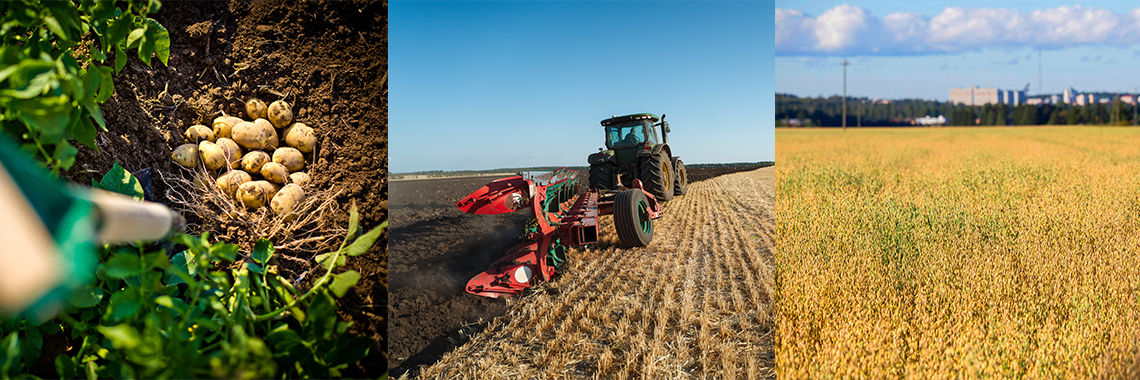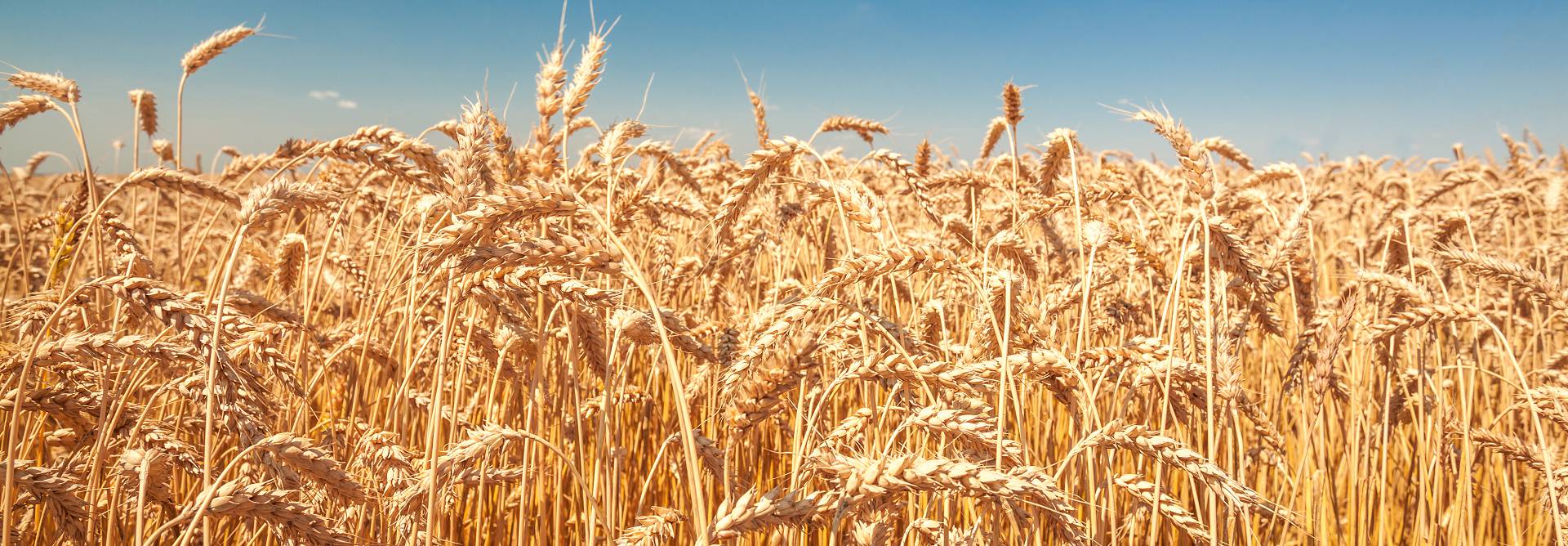
In February 2022, Kinno launched a new project to uncover the true commercial potential of Kymenlaakso Food industry In the project, Kinno is working together with ProAgria, Xamk, Eduko and LUT. The project is funded as part of EU’s Covid-19 measures. The project will conclude at the end of June, 2023.
The project is aimed at recognizing the opportunities inherent in the Food industry value chains and ecosystem, from primary production to exports. Once the opportunities have been identified, the project seeks to strengthen them. In the long term, the local sector should be molded into a genuine Food industry cluster of regional and national significance. This cluster has the ability to boost the growth of the region’s companies and agriculture.
Kouvola is the breadbasket of Finland
"Kouvola is right there on top in domestic agricultural and forestry production. If agricultural production in Kouvola wavers, the impact is felt around the country,” says Aleksandra Turunen, project manager for Food industry project at Kinno.
Looking at the number of farms in Finland, Kouvola comes out on top. With regards to the number of square metres utilized for agriculture, Kouvola is the runner-up. On the list of generated farm revenue, Kouvola is 7th.
In Kouvola, the share of organic agricultural production is greater than the national average. About one fifth of the fields is deployed for organic produce. In addition, the timber sales in Kouvola are on a consistently high level nationally.
By January 2023, the project focusing on the potential of Kymenlaakso Food industry sector had interviewed about 50 sector producers, companies, associations, educational institutes and stakeholders. Enterprises and farmers have provided valuable information about the status quo and the developmental needs going forward. In addition to interviews, also relevant reports and other studies have been looked into.
Low processing rate, networks needed
Kymenlaakso Food industry scene consists of, for the most part, a few big players and several smaller actors – while there aren’t many medium size companies. Local agricultural revenue streams are sizeable, but the further processing of raw materials is lacking.
According to questionnaires and discussions, the sector is still dealing with the Covid-19 aftermath, the war in Ukraine and the resulting high prices for raw materials and fuel as well as availability issues and inflation.
Locally, the companies have expressed concern over not having common networks. “Farms need to network, get more information and contacts to potential buyers and other producers. The farms seem to have resources and interest to pursue additional production,” says Turunen.
The need to revamp operating models recognized
The interviews have revealed that the sector players have found business premises quite easily and inexpensively, but the properties are rarely in top condition. The availability of motivated labor is also perceived as a challenge, and hiring outsiders is not always felt to be a very profitable move. Berry farms, however, would be happy to deploy foreign labor.
Training involving sustainable development and ecological activities is requested by local players. Similarly, sales and marketing are perceived to be challenging, and proper training in social media and e-commerce is on the wish list of many local operators. Information on the effects erosion, diseases and pests, brought about by climate change, is also required. The mounting pressure from consumers towards a more vegetarian-oriented lifestyle has been widely recognized by the local companies.
The global political situation, inflation and the aging of local producers have also come up in the interviews. Changing of operating models and, for example, engaging in joint procurements are viewed more positively than ever before. There is also a positive attitude towards putting forth tenders together with other companies.
In February 2022, Kinno launched a project to uncover the true commercial potential of Kymenlaakso Food industry sector. Kinno is working together with ProAgria, Xamk, Eduko and LUT in the project. The project is funded as part of EU’s Covid-19 measures. The project will conclude at the end of June, 2023.
The project is aimed at recognizing the opportunities inherent in the Food industry value chains and ecosystem, from primary production to exports. Once the opportunities have been identified, the project seeks to strengthen them. In the long term, the local sector should be molded into a genuine Food industry cluster of regional and national significance. This cluster has the ability to boost the growth of the region’s companies and agriculture.
The project features three Work Packages:
- The current status and developmental needs of the operative environment; getting familiar with primary production, processing and the overall industry today and what are the next steps.
- New emerging opportunities of the Food industry; uncovering and analyzing the sector potential and business development for the future.
- Networks and getting organized; conducting a benchmark study on other industry clusters and ecosystems, getting operators together, forming a common vision on future needs/operative model and composing an action plan and road map for further development.
Contact information
In all matters relating to Kouvola Food industry, please contact Project Manager Aleksandra Turunen.
Contact us!
Turunen Aleksandra
Director, invest in
+358 20 615 8140
aleksandra.turunen@kinno.fi


